Ghost Stories (2017)
Directed by: Andy Nyman, Jeremy Dyson
Written by: Andy Nyman, Jeremy Dyson
Starring: Alex Lawther, Andy Nyman, Martin Freeman, Paul Whitehouse
UK
IN CINEMAS NOW
RUNNING TIME: 98 mins
REVIEWED BY: Dr Lenera, Official HCF Critic
Phillip Goodman is a well-known professor who specialises in debunking fraudulent psychics on his television programme, regarding it as his life’s work to stop people’s lives being ruined by superstition the way his family was when he was a child when his strict Jewish father threw his sister out of the family for dating an Asian man. He receives an invitation to visit Charles Cameron, a famed 1970’s paranormal investigator who inspired him as a boy, but who has been missing for decades and is now living, sick and in poverty, in a caravan. Cameron tells Goodman that he was wrong and asks him to investigate three incidents of supposedly real supernatural ghost sightings by a night watchman, a teenage boy and a city financier respectively….
I have to say that I was full of joy and may well have hit the roof of the cinema if there had been a ladder. What am I wittering on about you may ask? I’m referring to the feeling I was having when I realised that I was watching a second genuinely scary film at the cinema not long after I’d seen previously seen another one. It’s rare that you get two horror films out in the same week that put the frighteners on you, especially when you feel like you’ve seen it all before. And yet Ghost Stories, which initially seems like the missing link between a typical modern Hollywood spook show of the Insidious/The Conjuring school and those anthology films, mostly made by Amicus, that came out during the late 1960’s/early 1970’s such as Dr Terror’s House Of Horrors and Asylum, is in many ways a different kind of beast. Yes, it sets out to chill and make you nervous and make you jump, and it certainly succeeded in doing all three of those things for me, but it also tries to do a bit more, such as ask whether ghosts are real or not [though it fails to provide an answer to this] and deliberately telling its story in quite a fractured fashion with lots of cutting back and forth between the present and the past and from different viewpoints. And towards the end it almost becomes a different kind of movie altogether. As I type, I’m undecided as to whether the decision to have the final act be this way was a good choice of not. I expect that filmgoers are probably split 50/50 on this.
The opening presents us with deliberately scratchy film footage from occasions in a Jewish family, culminating in the daughter being chucked out because of her relationship with an Asian. Cut to supposed psychic Mark van Rhys startling his audience with his skills, only that Phillip Goodman, the young son in the family footage we’ve just seen, thinks that he’s a fraud, and his recording of someone telling van Rhys information through an earpiece proves that he was correct – though the crowd don’t believe him and security quickly force him off the stage. At first, it’s easy to be behind a guy like Goodman, who genuinely believes that he’s doing good by destroying the credibility of these people who pray on the gullible, even if his actions can make some people even more upset like the poor woman who thought that van Rhys had been talking to her son. However, his rather flippant, insensitive attitude soon begun to make me start to dislike him which no doubt was intended. He’s trying to be like his hero, 1970’s paranormal debunker Charles Cameron, but when invited to see him we are given an example of how it might be be best to meet your heroes. Cameron had changed his tune, and gives Goodman files on three cases which he was unable to disprove.
Goodman goes to interview the three people concerned, and it’s their rather too brief stories which, despite occasionally departing from the point of view of the teller [at one point we get a subjective camera forest run straight out of The Evil Dead which is fun and certainly brought a grin to my face though it made the eerie mood diminish for a bit], provide the frights. In particular the first tale by night watchman Tony Matthews is a fine little vignette of well handled terror, set in an abandoned asylum which as we all know is a great setting for horror. Matthews, who in the ‘present’ is still grieving over his wife’s death from cancer and is guilty that he’d stopped visiting his daughter who suffers from locked-in syndrome, is subjected to an increasingly intense series of inexplicable happenings. It seems that the ghost of a dead girl is about. Despite this portion opening with the increasingly tiresome device, re-used later, of using a loud musical note to punctuate a jump scare, there’s a real sense of fear here and one shot of what could be the ghost – or is it just a mop and bucket? – is truly nightmarish and haunts my mind as I type. Then we have tormented young Simon Riffkind who has a bedroom full of pictures of demons, and who supposedly encountered one when out for a drive through a forest. His segment is less hair-raising and too short to have the same effect, but it still certainly has its moments.
And finally there’s Mike Priddle, second billed Martin Freeman only showing up over half way through. He’s a rich businessman who seems even more flippant than Goodman but who is suffering from grief from the death of his wife in childbirth. He seemingly encountered a poltergeist in his huge house, a ghastly ultra-modern thing that looks scarcely less pleasant than the disused asylum, though it’s nice to have a change of scenery with each incident, and this ghost does stuff during the day. And then the film changes, and stops really becoming about somebody investigating hauntings as reality seems to totally break down. It’s a brave thing to do, and I wondered where things were going for a bit until a rather obvious explanation took root in my head and proved to be right. You will have seen it, or at least variations on it, in movies before, and the final scene even seems inspired by a once-controversial conclusion to a film that isn’t even horror. It’s all certainly praise-worthy, but I also can’t help feeling that the first two thirds may have been better served by more conventional storytelling with maybe just the climactic revelation at the end, while I left the cinema feeling not so much saddened as depressed, which isn’t really what you want from a ghost story. The conventional chills almost disappear too, though I guess it’s partly replaced by horror of the more psychological kind which is often far more frightening, and I have the feeling that watching this a second time will reveal lots of clues that have been strewn about for viewers to pick up on or not pick up on, and therefore show the script to have been actually quite clever. I’m still undecided as to whether they made the right decision with the final act of this film, and this is coming from someone who likes stuff that’s on the mind bendy side.
There seems to be only a small account of CGI, and director/writers Jeremy Dyson, usually making Derren Brown documentaries, and Andy Numan, a veteran comedy writer responsible for many episodes of The League of Gentlemen, seem totally at home with horror, setting up the scares with such consummate ease that you may be on edge wondering if, for example, that fog you see moving around could actually be ghosts. There’s one brief but telling moment when we see total darkness behind an open door which virtually gets to the essence of much of horror and why we like it – we really, really want to peer into the black and see what’s there yet we’re also scared to do so. They also get a lot out of their Yorkshire locations, such as a deserted caravan park or a dilapidated pub, they’ve chosen places that seem not quite right even if when nothing odd is happening. Everywhere seems miserable, short on people [this may have been for budgetary reasons but it adds to the effect] and just a little bit ‘wrong’. Yet despite all this, there’s also a well judged element of humour to some of the proceedings, notably in the performances from Freeman and Paul Whitehouse who, in both of their respective roles, unsurprisingly manage to lighten the tone just a little while still making us feel sympathy for their very different characters – though really it’s Numan who shines brighter than all as his character’s arrogance and smug self-righteousness begins to be replaced by an almost child-like vulnerability.
Dyson and Numan actually adapted this film from their stage play of the same name which got a reputation from terrifying theatre-goers, but have obviously changed quite a lot for the big screen as the result certainly doesn’t feel stage bound. Composer Haim Frank Ilfman, not someone I’d heard of previously, seems to have been asked to deliberately provide as cliched a horror score as possible, though it’s always nice to have a music score that’s so upfront and properly audible these days. Ghost Stories perhaps isn’t quite as essential a cinema experience as A Quiet Place, but then it’s not really trying to be a big crowd pleaser, and it’s possible that it may stick in the mind for longer. I’d still recommend it for horror fans – but be prepared to differ with your companion on the final act.

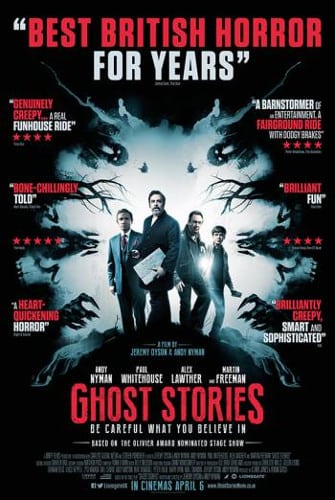
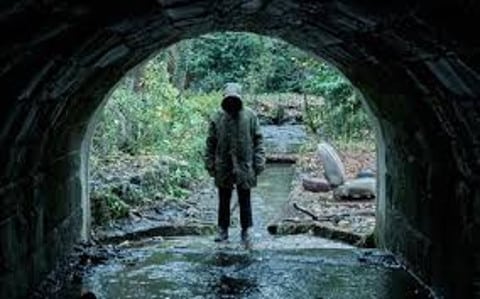
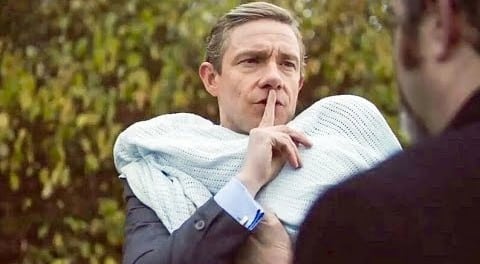




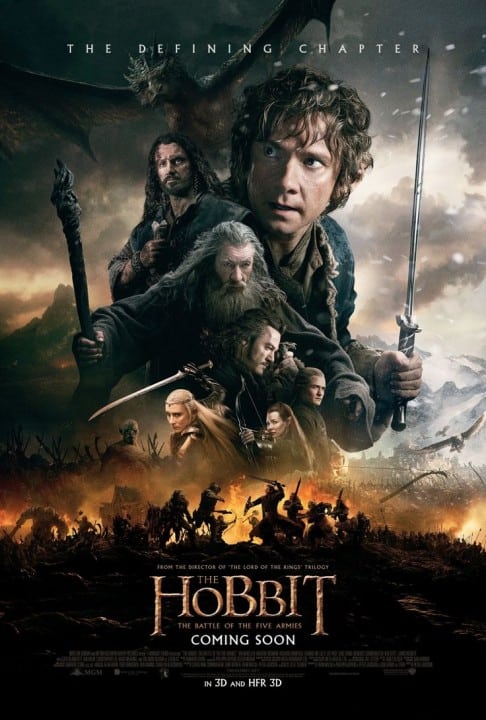
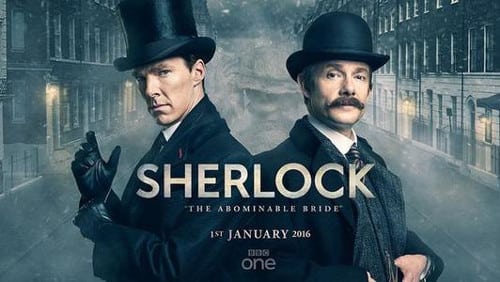

Be the first to comment